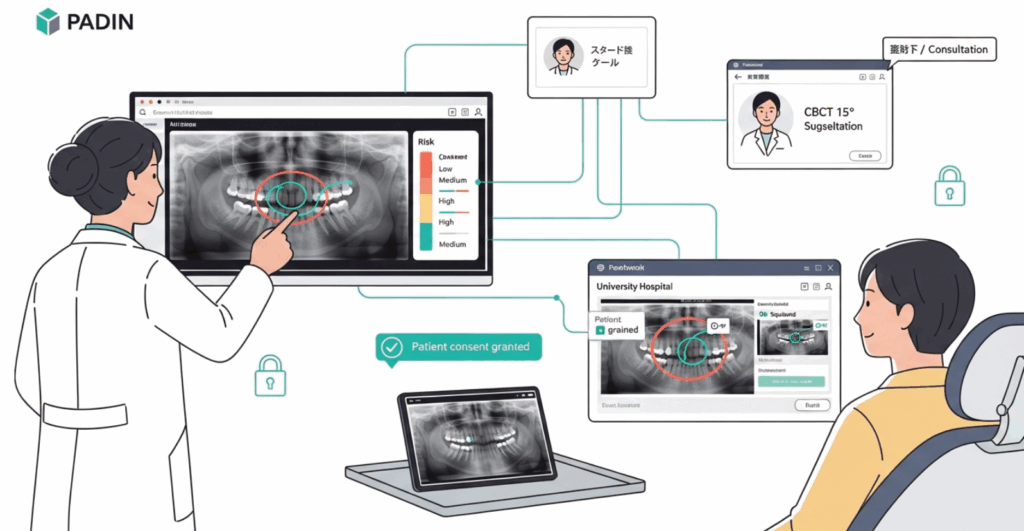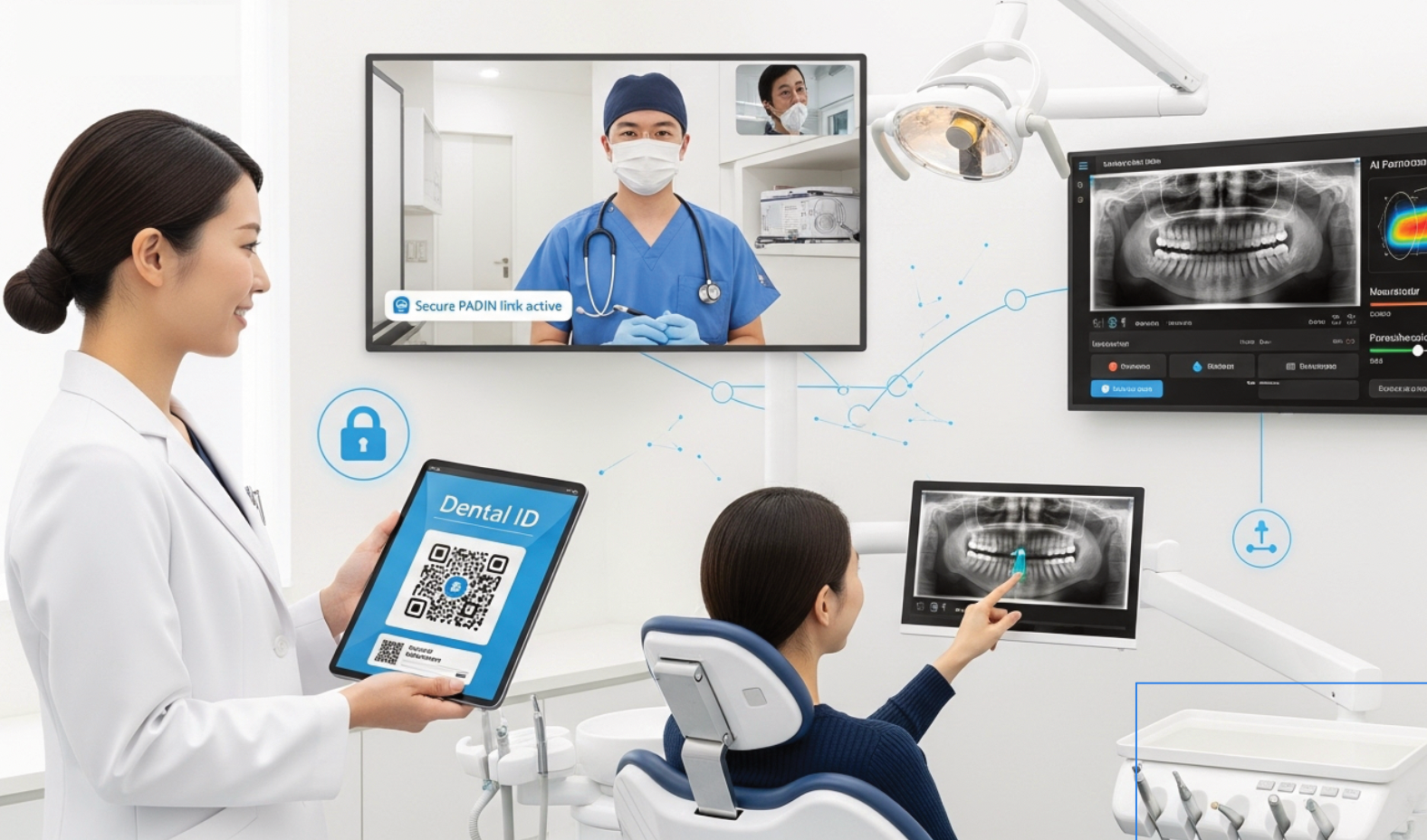Paperwork often delays care. Dental ID turns forms into a phone tap. After a quick face scan and My-Number (or passport) check, the app issues an encrypted credential accepted by local clinics and the university hospital.
Booking is now a QR scan; referral letters, images, and e-tickets ride on the same secure token. A patient in suburban Tokyo—or downtown Bangkok—can reserve a slot at Osaka University Dental Hospital in minutes, not hours. Japan’s privacy law and GDPR are built in: data stay locked until the patient opens them, and every access is recorded for both sides. Less time at the counter, more time in the chair—care that begins with trust, not paperwork.

After check-in, Dental ID unlocks advanced support. A regional dentist uploads a panoramic X-ray; within seconds an AI model—trained across PADIN partner institutions—highlights the nerve canal and estimates wisdom-tooth paresthesia risk. Results appear chair-side and, with patient consent, also open in a secure university-hospital dashboard. Specialists can add notes, request a new CBCT angle, or confirm referral dates—no extra log-ins, because the same ID token grants access everywhere.
This workflow eliminates back-and-forth calls, shortens referrals, and helps avoid unnecessary extractions. For clinicians, it is one seamless click; for patients, it feels as if the expert is already in the room. Dental ID turns local clinics into connected nodes of a truly pan-Asian dental network.

